IOM Yemen: Bridging the Distance - A Tale of Perseverance and Return
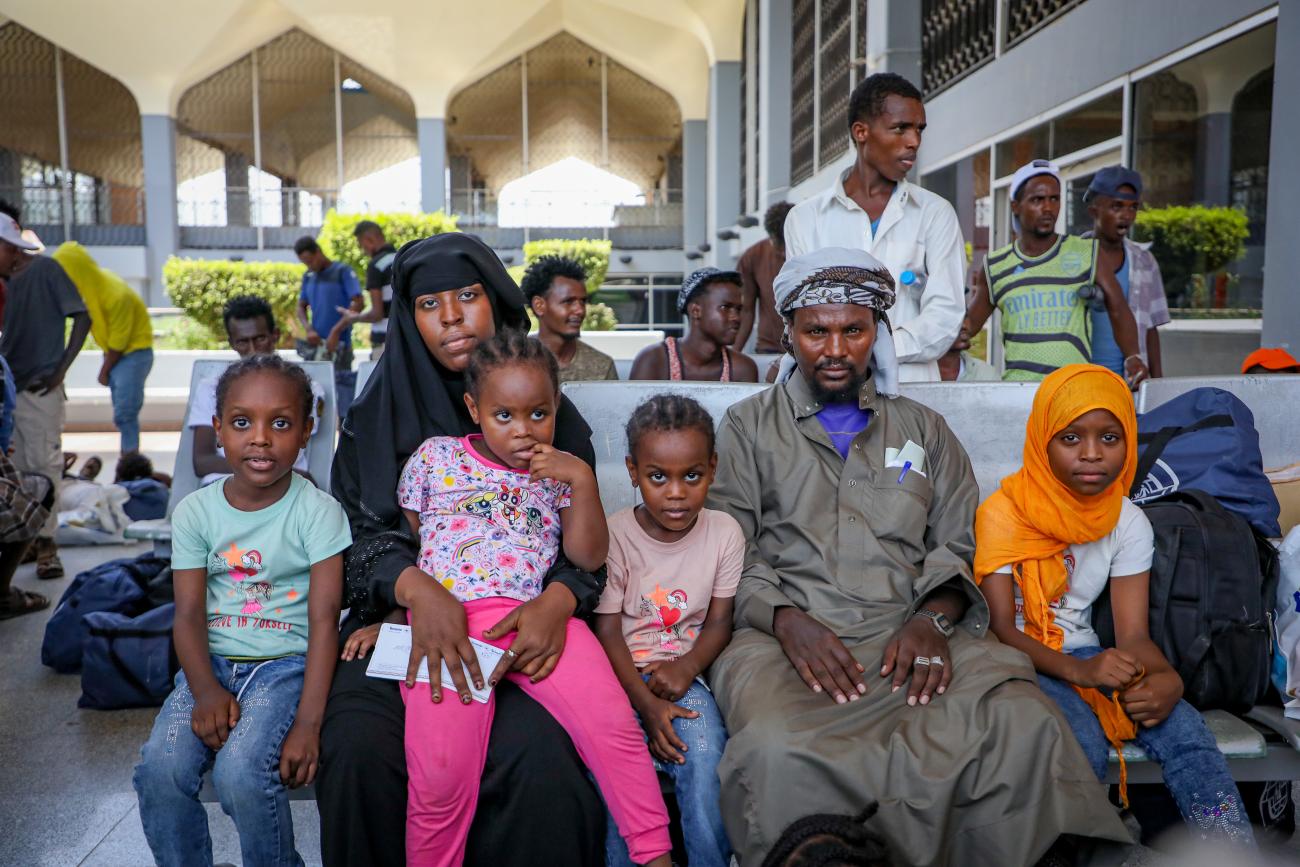
--
Aden, Yemen
In the highlands of Ethiopia, Mohammed grew up surrounded by the vibrant life of his village, where he dreamt of completing his education. His family owned a modest mud-brick house, a farm, and sheep. Despite the hard times, Mohammed continued working and supporting his family on the farm, never losing sight of his goal.
As the years went by, droughts transformed fertile land into barren soil and conflict from neighbouring regions began to spread. The responsibility of ensuring his family’s future and putting food on the table weighed heavily on Mohammed.
“Leaving my country was the most difficult decision for both me and my parents,” he shares. “I wanted to study, find a job, and provide my family with a better life.”
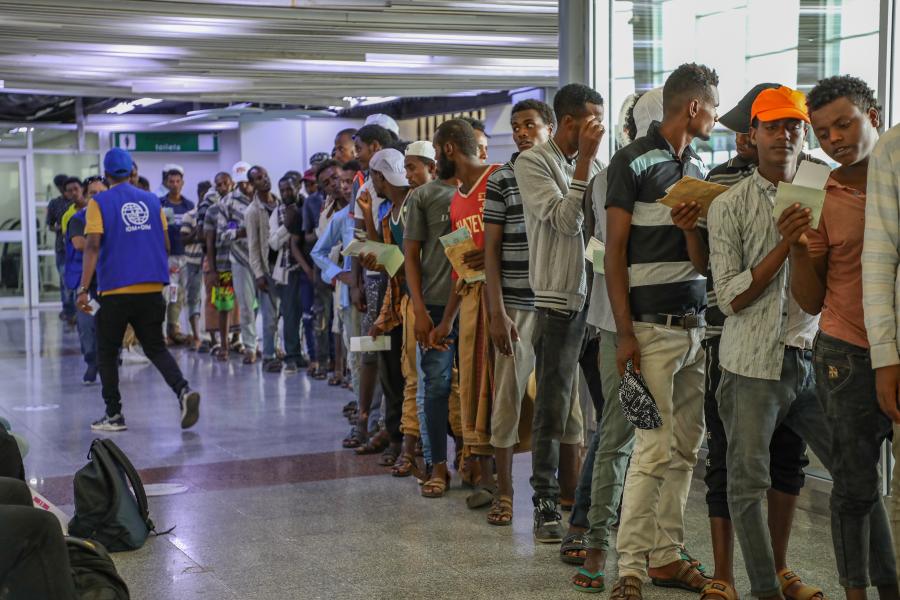
Across the Sea
Driven by this hope, Mohammed devised a plan to travel to Yemen and eventually reach the Kingdom of Saudi Arabia, where he believed opportunities awaited. Trusting the smugglers’ promises that the journey would take only a couple of days, he set off on a perilous journey from Ethiopia to Yemen, determined to improve his life and support his family.
In that moment, Mohammed could not have imagined that this journey would separate him from his family for the next 25 years. The sea crossing from Somalia to Yemen was a 36-hour ordeal, and his anxiety slowly turned to dread as he witnessed the tragic drowning of four fellow travelers.
The vastness of the ocean seemed to reflect the uncertainty of his future: Would he reach his destination safely? What would he find on the other side? During those endless hours at sea, Mohammed discovered the true meaning of resilience, holding onto hope even as fear threatened to overtake him. “Nothing could have prepared me for what I experienced,” he says.
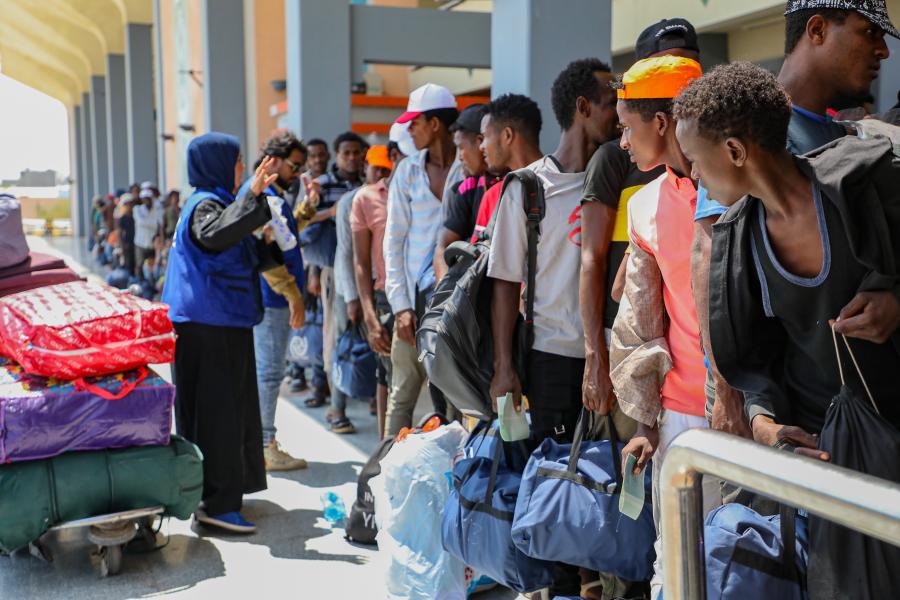
Stranded in Yemen
Once he reached Yemen, like many other migrants, he had to embark on the long walk to Sana’a, where hundreds of stranded migrants were holding onto the same dream: to support their families back in Ethiopia. However, Mohammed’s hopes of reaching the border were soon crushed. Struggling to find work, his suffering grew, and his dreams of reaching Saudi Arabia slowly slipped away.
“I felt sad and disappointed because I had tried more than three times to reach Saudi Arabia but never succeeded. I couldn’t even find work in Yemen,” Mohammed explains. “This was not easy on me, as my family depends on me to provide for them.”
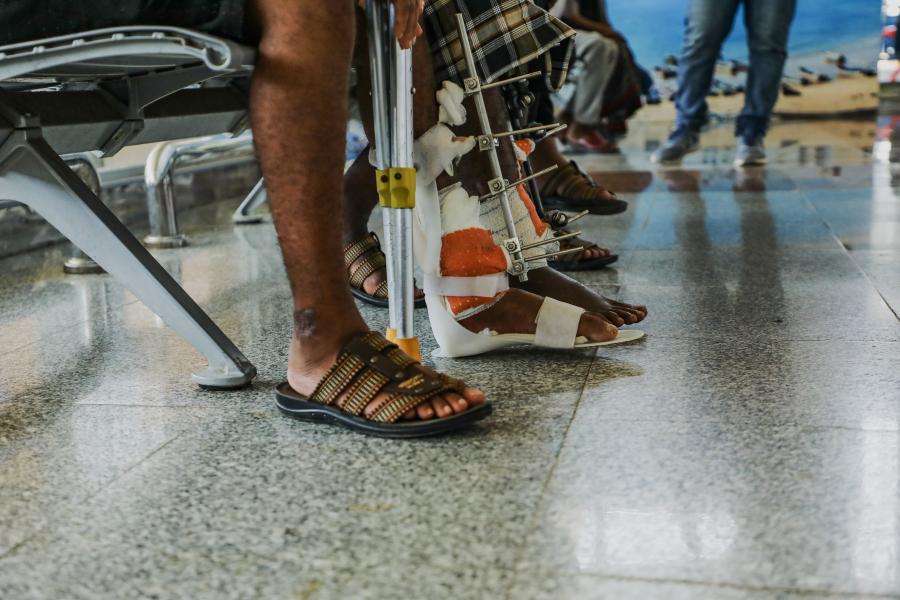
For many Ethiopian migrants, Yemen is viewed as a gateway to better opportunities, despite its own challenges. In 2024, more than 10,000 migrants attempted the journey to Yemen, undeterred by the difficult living conditions and risks they faced. These migrants are often exposed to significant stigma, coupled with abuse, exploitation, and gender-based violence.
“My Ethiopian brothers are living in terrible conditions. Words cannot express how awful it is for those of us heading to Yemen, constantly facing the threat of trafficking and exploitation.” – Mohammed, Ethiopian Migrant
From Trials to Triumph
For several months, Mohammed slept on the streets, using cartons as a makeshift bed and surviving on leftovers from restaurants. Determined to change his situation, he embarked on another risky journey from Sana’a to Ma’rib City, driven by the hope of continuing his studies.
In Ma’rib, he found a modest job at a fuel station, which provided just enough to meet his daily needs and cover the costs of his education. Fortunately, his knowledge of Arabic, acquired back home, helped him quickly adapt and pursue his studies in Yemen.
After completing his studies, Mohammed met his wife, got married, and had four daughters. Although he found some stability, he continued to save diligently, holding onto the hope of reuniting with his family in Ethiopia.
Mohammed connected with new Ethiopian friends who shared similar struggles. They exchanged stories of their journeys and offered each other encouragement. It was through these conversations that Mohammed found out about the International Organization for Migration (IOM) and the support it provides to help migrants return to their home countries. “I was overjoyed and immediately set off with my family for Aden,” Mohammed shares.
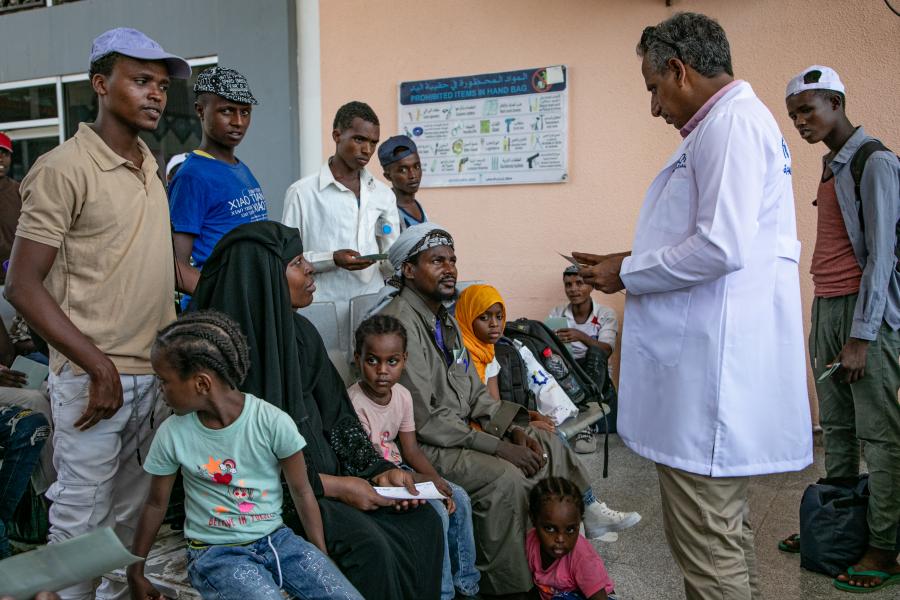
During the five long years Mohammed spent studying and working in Ma’rib, his dream of going to Saudi Arabia gradually faded, but the worry and sadness remained whenever he thought of his family.
“I’m truly grateful I was able to complete my education,” he shares. “However, during that time, I constantly thought about my family and wondered how and when I would see them again.” – Mohammed, Ethiopian Migrant

A Path Home
In response to the dire situation faced by migrants, IOM operates Migrant Response Points (MRPs) across Yemen to provide essential services such as relief items, protection services, health care, and mental health and psychosocial support.
To ensure safe returns, IOM also arranges regular Voluntary Humanitarian Return (VHR) flights in collaboration with authorities, facilitating access to necessary travel documents. Migrants receive medical screenings, awareness-raising sessions, basic travel kits, food, and accommodation before departure. With support from IOM’s Protection team, Mohammed and his family were registered and had their documents processed, soon after departing on a VHR flight home.
Stranded migrants, primarily Ethiopian, often wait months or even years for a chance to return home. VHR flights from Yemen are a lifeline for many, addressing the severe insecurity, lack of basic needs, and abuse they face. In 2024 alone, IOM assisted over 4,000 Ethiopian migrants to safely return home.
“I couldn’t hold back my tears when I realized our documents were finally ready and we would soon be on the flight home with our children,” Mohammed says. “I know my parents will be overjoyed to meet their grandchildren for the first time and I want my children to create cherished memories with them.”

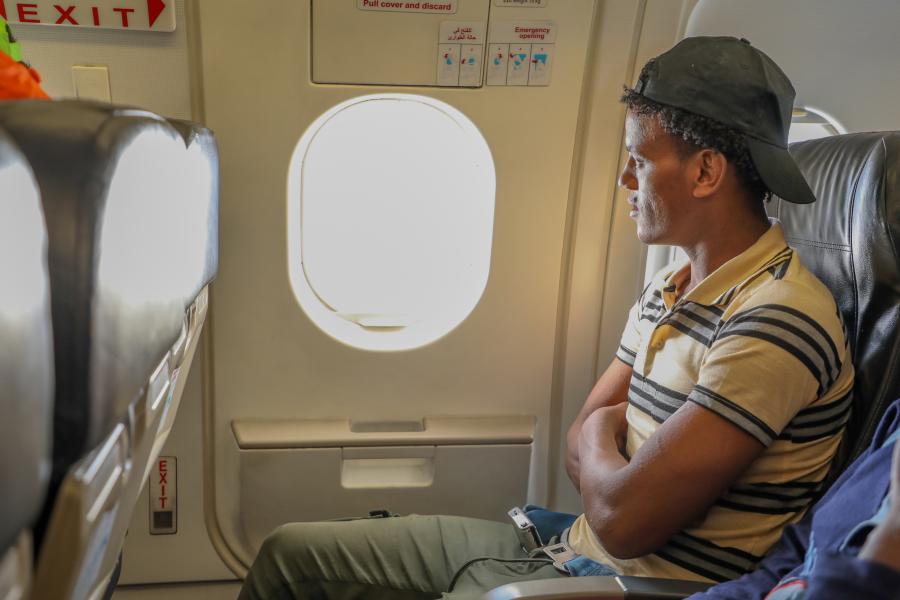
FootnotesIOM’s Voluntary Humanitarian Return (VHR) programme in Yemen is funded by the United States Bureau of Population, Refugees, and Migration (PRM).

